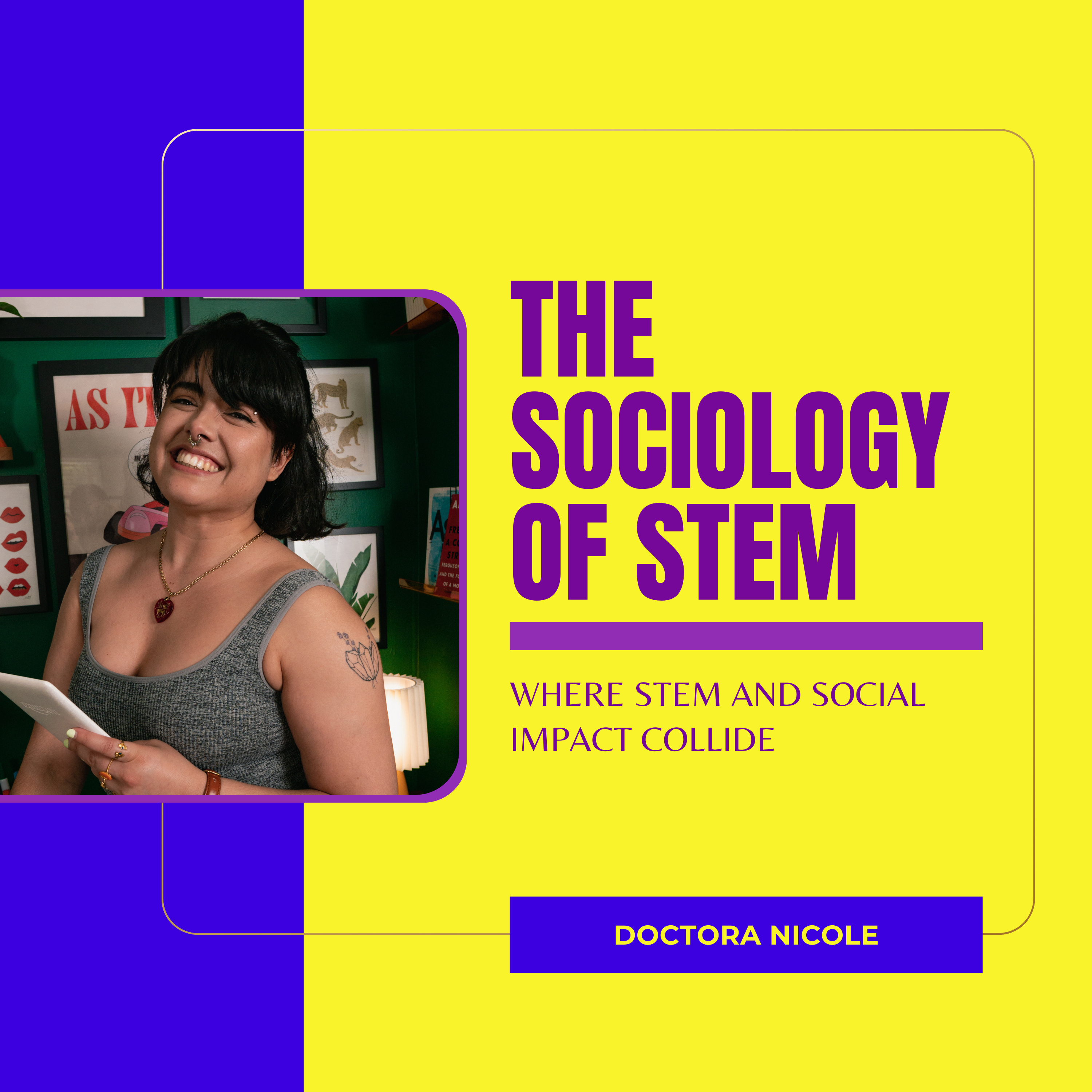The Sociology of STEM with Dr. Nicole Cabrera-Salazar (Part 1)
- Author
- Surayya Walters
- Published
- Tue 14 Jan 2025
- Episode Link
- https://podcasters.spotify.com/pod/show/purposefulprofessional/episodes/The-Sociology-of-STEM-with-Dr--Nicole-Cabrera-Salazar-Part-1-e2tgj4q
In this engaging conversation, Dr. Nicole Salazar discusses her journey from astrophysicist to social impact entrepreneur, focusing on the challenges faced by marginalized individuals in STEM fields. The dialogue explores the implications of DEI (Diversity, Equity, and Inclusion) versus MEI (Merit, Excellence, and Intelligence), the myth of meritocracy, and the systemic barriers that lead to the marginalization of diverse voices in science and technology.
Dr. Salazar emphasizes the importance of advocacy and creating supportive environments for underrepresented groups in STEM, highlighting the need for justice and equity in these spaces. In this conversation, Surayya and Doctora Nicole Cabrera Salazar explore the systemic issues faced by marginalized individuals in STEM fields. They discuss the toxic culture of silence and assimilation, the exploitation inherent in these spaces, and the need for systemic change rather than individualistic solutions.
Takeaways
Dr. Nicole Salazar transitioned from astrophysics to social impact entrepreneurship.
DEI is often countered by MEI, which undermines marginalized voices.
Meritocracy is a myth that perpetuates inequality.
Marginalized individuals often leave STEM due to toxic environments.
The leaky pipeline in STEM affects marginalized communities at every level.
Toxic benevolence can infantilize marginalized individuals in academia.
Suspicion and aggression limit the growth of marginalized students.
Visibility of Black excellence is crucial for societal change.
Inertia in systems prevents necessary advocacy for change.
Equity and justice should be the focus in STEM fields. Marginalized voices in STEM often face toxic benevolence and false meritocracy.
STEM spaces are predominantly white and require assimilation to succeed.
Chapters
00:00 Introduction and Background
02:04 Challenging the Flawed Concept of MEI
09:05 The Importance of Justice and Equity in Inclusion
13:26 Addressing the Toxic Culture in STEM
17:14 Creating Counter Spaces for Marginalized Individuals
19:23 The Value of Lived Experience and Diverse Perspectives
23:21 Leaving Academia and Advocating for Diversity in STEM
30:12 Creating Your Own Path in STEM and Connecting with Marginalized Communities
35:11 Challenges Faced by Marginalized Individuals in STEM
51:51 The Exploitative and Oppressive Nature of STEM Spaces
54:13 Systemic Issues in STEM
58:27 The Paradox of Pursuing Power
01:06:24 The Need for Systemic Change
01:08:48 Overcoming Barriers to Inclusivity
01:14:03 Reclaiming Strengths and Heritage
